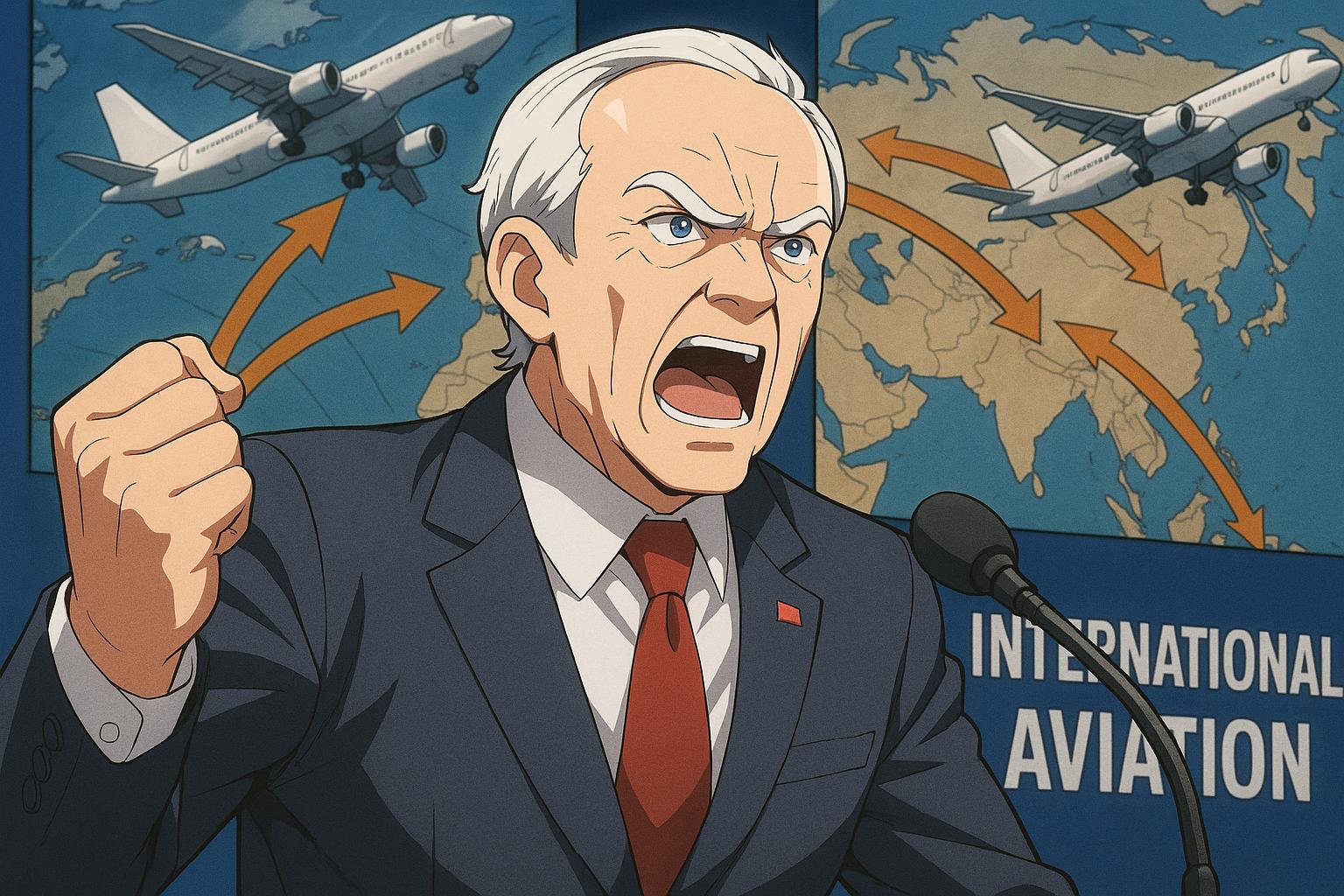At the recent International Air Transport Association (IATA) Annual General Meeting in New Delhi, Emirates President Sir Tim Clark issued a scathing commentary on the ongoing delivery delays experienced by global aircraft manufacturers, particularly Boeing and Airbus. Clark's remarks reflect a growing frustration within the airline industry over supply chain issues that have become a persistent problem, severely impacting the ability of airlines to modernise their fleets and meet increasing passenger demand.
Clark did not mince words when addressing the aircraft manufacturers, stating, “I am pretty tired of seeing the hand-wringing about the supply chain: you (manufacturers) are the supply chain.” This call for accountability highlights a significant tension between airlines and the manufacturers, who have relied on the pandemic as a convenient excuse for production delays. With airlines like Emirates seeking to introduce more fuel-efficient, long-range aircraft, these setbacks are not just logistical inconveniences; they pose real threats to operational integrity and competitive positioning in a rapidly evolving market.
A substantial contributor to these frustrations is the Boeing 777X, an aircraft on which Emirates has placed an order for 205 units. Originally slated for delivery in 2020, the timeline has now been pushed back, with the first deliveries anticipated between late 2026 and early 2027, representing a staggering six-year delay. As the U.S. Federal Aviation Administration (FAA) continues to tighten scrutiny over certification processes following safety concerns, the question of when Boeing can resolve these issues remains uncertain. Clark noted, however, that recent engagements with Boeing have revealed a "greater degree of determination" to rectify these problems, albeit cautiously optimistic about their efforts.
Boeing’s troubles are reflected not only in the delays of the 777X but also in its broader production issues stemming from quality-control crises and workforce disruptions, including strikes that have hampered output. Airbus, its chief competitor, is likewise grappling with significant delivery delays, warning that its A320neo and A350 programmes could see timelines extend by up to three years. These struggles paint a grim picture for the entire aerospace sector, which is still recovering from the disruptions caused by the COVID-19 pandemic.
Emirates' operational strategies have been directly affected by these delays. In response to the aircraft shortages, the airline has embarked on a $5 billion initiative to refit 220 of its existing aircraft to sustain its network and enhance service. While organizations like the International Civil Aviation Organization and the IATA advocate for greener aviation solutions, Clark has pointed out the repercussions of these delays, which may force Emirates to extend the operational lifespan of older, less efficient aircraft to meet market demands.
Moreover, engine supply issues are compounding the situation. The dual American and British manufacturers, GE and Rolls-Royce, have come under scrutiny for their reliability, particularly in the challenging climates faced by airlines like Emirates. Clark remarked on the necessity for both manufacturers to enhance their performance or risk losing opportunities in a profitable market segment. This concern is significant for Rolls-Royce, which has had its Trent 1000 and Trent XWB engines facing multiple airworthiness directives from the U.K. Civil Aviation Authority, necessitating additional scrutiny and performance assessments.
The larger context reveals a supply chain crisis that is fundamentally intertwined with geopolitical factors, lingering effects of the pandemic, and rising operational costs. Both the U.S. Department of Transportation and FAA have identified considerable labor shortages and insufficient digitalisation as hurdles that must be overcome to stabilise production. Additionally, the White House Supply Chain Resilience report has categorised aerospace as a sector in dire need of strategic investment and reform to bolster its capacity against future shocks.
Clark's assertive commentary represents a broader sentiment among airline executives who are demanding more robust accountability from aircraft manufacturers. “You are the supply chain,” he reiterated, urging for a model where manufacturers take ownership of the timelines that impact not only their business but also the operational health of airlines globally. As the aviation industry continues to navigate these turbulent waters, the persistently high demand for air travel only underscores the urgency for rapid resolution and reliable partnerships, as the world emerges from pandemic-induced restrictions.
With global passenger traffic expected to rebound beyond pre-pandemic levels, the challenge remains whether major aircraft manufacturers can indeed rise to the occasion and deliver on their commitments. Tim Clark's assertiveness signals a pivotal moment for accountability and expectations, with Emirates poised to continue demanding excellence in its supplier relationships. Whether the likes of Boeing, Airbus, Rolls-Royce, and GE can meet the evolving needs of carriers like Emirates—and restore their reputations—will be critical in shaping the future of global aviation.
Reference Map:
- Paragraph 1 – [1], [2]
- Paragraph 2 – [1], [2], [3]
- Paragraph 3 – [1], [4]
- Paragraph 4 – [1], [5]
- Paragraph 5 – [6]
- Paragraph 6 – [1], [2], [3]
- Paragraph 7 – [1], [2]
- Paragraph 8 – [1], [6]
- Paragraph 9 – [1], [4]
Source: Noah Wire Services
